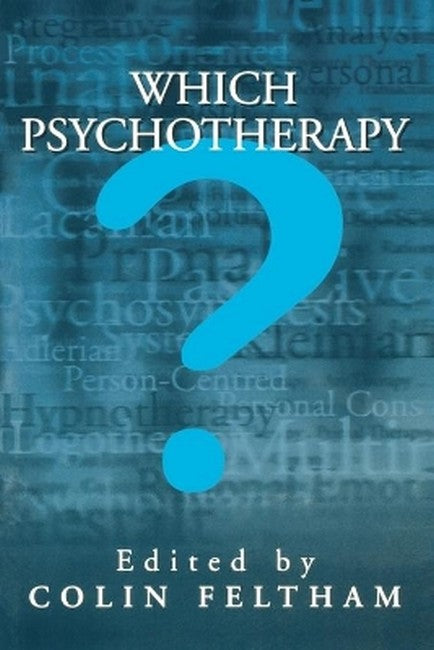Colin Feltham is series editor of Professional Skills for Counsellors and Short Introductions to the Therapy Professions series, co-editor of SAGE Handbook of Counselling and Psychotherapy and author of several SAGE texts, including What is Counselling?
Request Academic Copy
Please copy the ISBN for submitting review copy form
Description
Irreconcilable Psychotherapies? - Colin Feltham The Person-Centered Approach - Jerold D Bozarth Integrative Psychotherapy, Integrating Psychotherapies, or Psychotherapy after `Schoolism' - Petruska Clarkson Rational Emotive Behavior Therapy - Albert Ellis Existential Psychotherapy - John M Heaton The Communicative Approach - Robert Langs Experiential Psychotherapy - Alvin Mahrer An Unabashedly Biased Comparison with Some Other Psychotherapies Multimodal Therapy - Stephen Palmer Transpersonal Psychotherapy - John Rowan
`Eight distinguished practitioners address twelve different questions, aimed at identifying the distinctive qualities of their own approach and demonstrating how it has been arrived at. The result is a book that will allow both experienced practitioners and trainees to become familiar with and compare the current thinking of these well-known people... the very passion of these opposing and sometimes exclusive convictions may be the well-spring for the efficacy and achievements of these eminent practitioners and trainers' - Self & Society `An interesting review of how contemporary therapists view their theories in relation to others... interesting and thought-provoking... all [chapters] were compelling' - Contemporary Psychology `Contains some interesting arguments' - Counselling, The Journal of the British Association for Counselling `A worthwhile read... the book awakened me to understanding more about how a core belief or orientation can result in polarised attitudes towards the person. At the same time, in some cases, there is fundamental common ground which could potentially lead to genuine integration' - [ac]Eisteach, The Journal of the Irish Association for Counselling and Therapy

